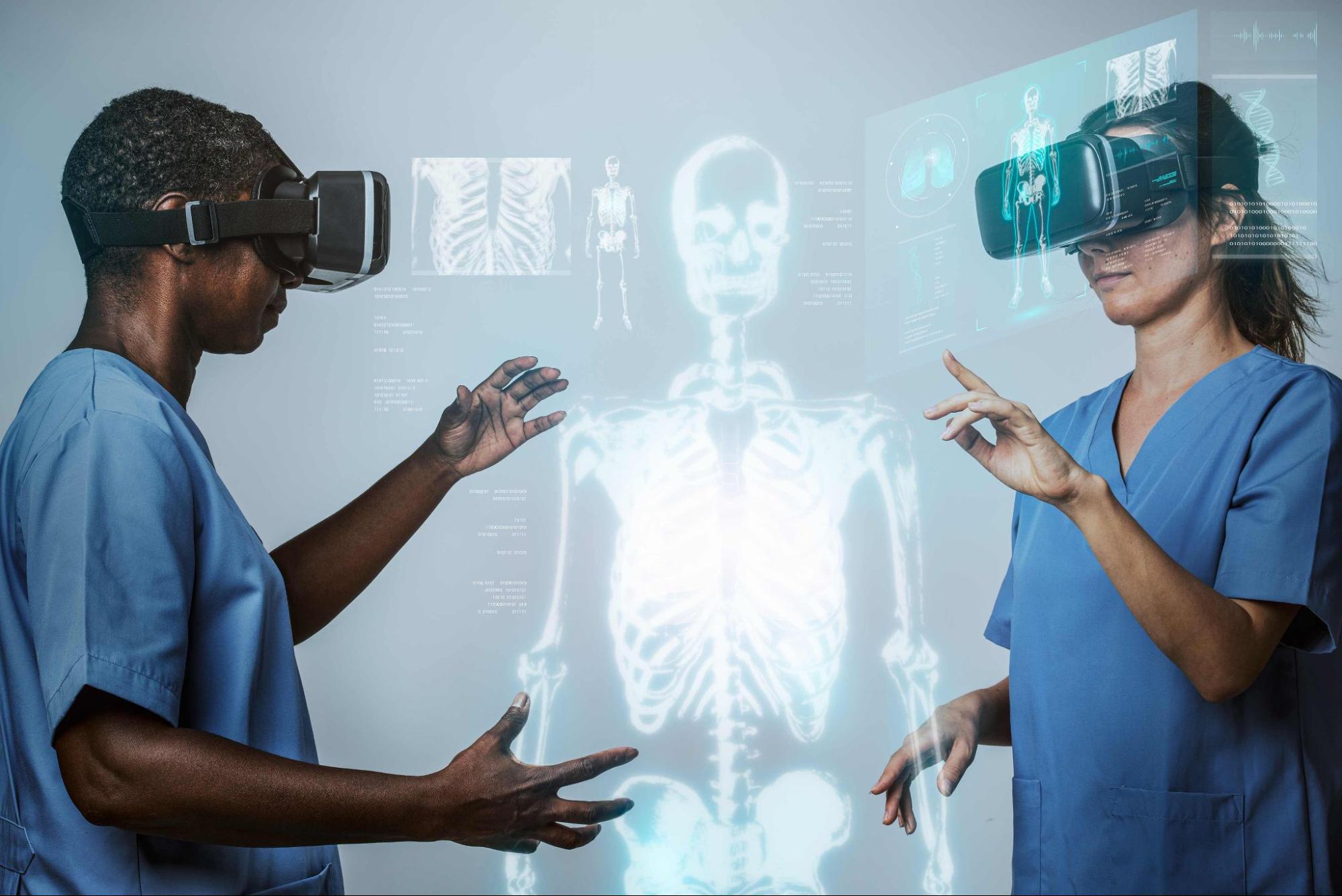The metaverse, often described as an augmented virtual world, marks an evolutionary convergence of technologies.
According to the Accenture report, more than eight in 10 healthcare executives expect the metaverse to impact the healthcare industry positively, and the report even described the metaverse as "the next horizon" in healthcare.
By 2030, Accenture projects that the healthcare metaverse market could be worth a staggering $5.37 billion.
But what exactly is the metaverse, and how does it differ from previous digital innovations?
In simple words, the metaverse is like the internet but in 3D. It goes beyond mirroring the physical world; it significantly enhances user experiences and interactions. This evolution results from ongoing social and technological changes, creating entirely new digital experiences and concepts replicating and enriching the physical world.
How Can the Metaverse Transform Healthcare?

While various industries like gaming and retail have embraced the metaverse early on, its potential extends far beyond these sectors. In particular, it promises to reshape healthcare as we know it. Health information technology has already demonstrated its ability to improve healthcare quality and safety, but the transformation could be even more profound with the integration of the metaverse.
One of the most immediate applications of the metaverse in healthcare is the potential for remote monitoring and telemedicine. Traditional healthcare models often struggle with geographic limitations, especially when providing care to those in rural or underserved areas. The metaverse bridges this gap by enabling healthcare professionals to monitor and consult with patients, regardless of location, remotely. Geographically limited patients can thus receive timely medical attention and advice, significantly improving patient outcomes.
What Role Does the Metaverse Play in Medical Training and Simulation?

The metaverse opens up exciting possibilities for enhancing the training of healthcare professionals. Imagine medical students immersing themselves in highly realistic virtual medical scenarios, allowing them to practise procedures and decision-making in a safe and controlled environment. This enhances the quality of medical education and contributes to better-prepared healthcare practitioners.
Could Virtual Healthcare Facilities Become a Reality?

Picture a future where hospitals and clinics exist within the metaverse, offering seamless and immersive healthcare experiences. Patients can visit these virtual facilities for consultations, diagnostics, and even surgeries performed by skilled surgeons controlling robotic instruments from afar. These virtual healthcare facilities could significantly reduce the burden on physical healthcare infrastructure and make healthcare services more accessible.
Patients gain more control over their health data in a metaverse-driven healthcare landscape. Through secure and decentralized digital identities, individuals can easily manage their medical records, choose who has access to their data, and participate in medical research or clinical trials. This data-driven approach promises more personalized and effective treatments, ultimately improving patient outcomes.
What Challenges and Considerations Must Be Addressed?
Despite the potential benefits, integrating the metaverse into healthcare poses several challenges and considerations.
-
Privacy and Security Concerns: Protecting sensitive health information within the metaverse demands robust safeguards. Data encryption, secure access, and defenses against cyber threats are essential to maintain patient privacy and the integrity of healthcare data.
-
Regulatory Compliance: Navigating complex healthcare regulations and compliance requirements within the metaverse is challenging. Healthcare providers must adhere to data protection laws, such as HIPAA, in the United States while operating in virtual healthcare environments.
-
Integration with Existing Systems: Integrating metaverse healthcare solutions with existing electronic health records (EHR) and hospital management systems is vital. Compatibility with legacy healthcare infrastructure ensures continuity of patient care.
-
Healthcare Professional Training: Adequate training of healthcare professionals in effectively using metaverse technologies and workflows is essential. Ensuring their proficiency in navigating the virtual healthcare landscape is critical for successful implementation.
-
Patient Engagement and Trust: Fostering patient trust in metaverse-based healthcare services is crucial. Demonstrating the safety and efficacy of these technologies and encouraging active patient participation in their healthcare within the metaverse are key components.
-
Cost and Infrastructure: Managing the cost of developing and maintaining metaverse healthcare solutions is a significant consideration. Building the necessary infrastructure, including high-speed internet access, is essential for widespread adoption.
Addressing these challenges and considerations is pivotal to realizing the full potential of the metaverse in healthcare while safeguarding patient privacy, accessibility, and the quality of care provided.
What Does the Future Hold for Healthcare in the Metaverse?

In conclusion, the metaverse is not just another technological trend but a transformative force poised to revolutionize the future of medicine. In healthcare, it holds the potential to reshape the way we provide and receive medical services. Health information technology has already demonstrated its capacity to enhance healthcare quality and safety, and with the integration of the metaverse, these improvements could be even more profound. Technology and medicine's fusion holds the key to a healthier tomorrow, reminding us that the metaverse represents an exciting frontier of healthcare innovation.





